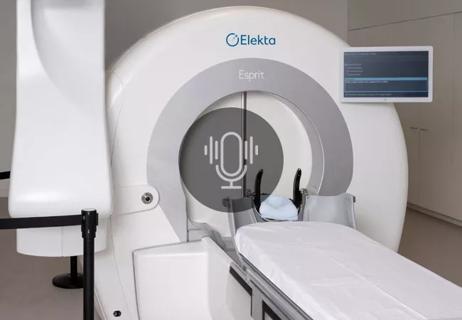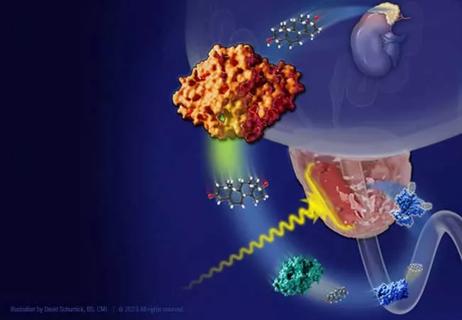Radiation oncology department finds weekly plan of care meetings have multiple benefits

Radiotherapy treatment plans typically undergo peer review in a retrospective manner – usually during a weekly “chart rounds” conference in which case review occurs, often after a patient has started their prescribed course of radiotherapy. However, research shows prospective peer review prior to plan approval before the patient starts their treatment increases safety and quality by enabling the identification of potentially significant issues such as changes to the targeted regions, changes to the overall prescription and changes to organs at risk (OARs).
Advertisement
Cleveland Clinic is a non-profit academic medical center. Advertising on our site helps support our mission. We do not endorse non-Cleveland Clinic products or services. Policy
To ensure consistent, high-quality radiotherapy treatment, the radiation oncology department at Cleveland Clinic began a weekly online departmental prospective plan of care review (PPCR) meeting in 2018. This involves pretreatment review of randomly selected definitive cases across the department, which includes 32 physicians at various sites.
“This came out of our departmental commitment to quality and safety,” explains Lanea Keller, MD, a radiation oncologist at Cleveland Clinic. “Intuitively, it makes sense to review care plans prospectively, before anything is planned, in case there needs to be a change or adjustment.”
The evolution of the department’s PPCR process over more than five years was presented at the 2024 American Society for Radiation Oncology’s annual ASTRO meeting.
The original weekly PPCR meeting takes place every Tuesday morning for one hour. However, because deeper expertise was required for certain types of cases, separate parallel online PPCR meetings for head and neck, stereotactic body radiation therapy (SBRT) and brachytherapy were successfully developed. This has progressed into breakout sessions for other specific subsites as well.
“We now have a CNS prospective peer review session for review of central nervous system tumors and a breast prospective peer review session for review of our breast cases,” says Dr. Keller. “These specialized sessions have evolved as a means to consolidate expertise and ensure that all of our radiation oncologists are providing consistent and high-quality radiotherapy for every patient and for every type of cancer treated within our department.”
Advertisement
The department also formalized an offline, one-on-one PPCR process to help codify “the typical ‘curbside consult’ that we do all the time with colleagues,” Dr. Keller says. This offline PPCR process helps track the overall number of cases that are being prospectively reviewed before the actual planning and delivery of radiation.
From July 2018 to December 2023, 1,670 cases were reviewed prospectively at the weekly meetings. Each case was evaluated for treatment appropriateness, simulation, target volumes, OAR and prescription (dose and fractionation).
Of these cases, less than 1% had a major change in OAR, prescription or simulation, and 2% had a major change in target volumes. “A major change is anything that causes us to stop the planning process so that we may make the suggested adjustments. These small numbers are a testament to the remarkably high quality and consistency of care we provide across our radiation oncology department,” says Dr. Keller.
A concern for a prospective review process lies in the potential for a prolonged time to treatment (TTT) that may result from waiting until the review is complete. The Cleveland Clinic Department of Radiation Oncology prospectively reviewed one-third of its cases in 2023. “For such a big department, 30% is a considerable number,” Dr. Keller says.
Importantly, TTT in 2023 was 7.2 business days for intensity modulated radiation therapy (IMRT) cases and 8.2 business days for SBRT cases. “These are very respectable numbers, especially for such highly complex treatments,” Dr. Keller says. “We’ve proven that we can review these cases and stay within our departmental standards for time to treat, which is great. I think we’ve showed that (the PPCR process) is achievable with high quality in an extremely timely manner.”
Advertisement
The department plans to continue expanding and improving upon its PPCR process. “The ideal goal is that every single case is reviewed and agreed upon by consensus,” says Dr. Keller. “Right now, we’re at a third, but our goal is to continue to increase prospective throughput by evolving our prospective review practices.”
Advertisement
Advertisement

An update on the technology from the busiest Gamma Knife center in the Americas

Daily five-fraction partial breast irradiation (PBI) shows similar acute and late toxicity as every other day PBI

Study offers a foundation for additional research to examine radiation and immune response

Number of stent layers correlates with worse outcomes

Research highlights promising outcomes for treating recurrent and metastatic cases

Improvements enable targeting of brain tumors with single-session, fractionated or neoadjuvant approaches

Correlation found between the biomarker HSD3B1 and resistance to combined hormone therapy and radiotherapy

Cleveland Clinic radiation oncologists aim to bring the noninvasive approach back to the U.S., where use has declined